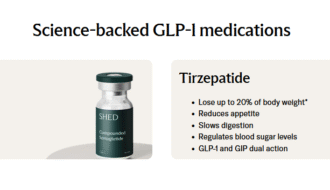The heart is undeniably one of the most vital organs in the human body, and any issue affecting its function can have serious consequences. Fortunately, modern medicine has come a long way in innovations and advancements that help to diagnose and treat various cardiovascular diseases. In this post, we’ll explore some of the latest advances in heart surgery techniques and technologies that are making it easier than ever before to save lives while minimizing risks. From minimally invasive procedures to robotic-assisted surgeries, get ready for an exciting journey into the world of cutting-edge cardiac care! Heart surgeons play an important role in medical field to know more about new techniques consult Amar Hospital Heart surgeon in Punjab
Innovative Techniques in Heart Surgery
In the last few years, there have been significant advances in heart surgery techniques and technologies. These innovative new methods are helping surgeons to improve outcomes and save more lives.
One of the most exciting developments is minimally invasive surgery. This approach allows heart surgeons to operate through small incisions, which reduces trauma to the patient and speeds up recovery time. New robotic technology is also playing a role in heart surgery, providing surgeons with greater precision and control.heart Surgeons are very versed in technologies especially in Amar Hospital Heart surgeon in Punjab.
Another area of recent progress is in the use of artificial hearts and other mechanical support devices. These devices can keep patients alive while they wait for a transplant or until their own heart has recovered enough to function on its own.
These are just some of the latest advances used by heart surgeons. With continued research and development, even more life-saving breakthroughs are sure to come in the future.
New Technologies used in Heart Surgery
Innovative Techniques and Technologies
New technologies are being developed all the time to improve heart surgery techniques. Here are some of the latest advances in this field.
Robotic-Assisted Heart Surgery
One of the latest technological advances in heart surgery is the use of robotics. This involves the use of a robot to assist in performing the surgery. The surgeon controls the robot, which means that they can be more precise with their movements. This can lead to fewer complications and a shorter recovery time for patients. Robotic-assisted heart surgery is still relatively new, but it is becoming more widespread as its benefits become more apparent.
Minimally Invasive Heart Surgery
Another type of innovative heart surgery is minimally invasive heart surgery. This involves making small incisions in the chest rather than opening up the chest cavity. This type of surgery has a number of benefits, including a shorter hospital stay, less pain, and a quicker recovery. Minimally invasive heart surgery is becoming increasingly common as its advantages become more widely known.
Procedures Used in Heart Surgery
The heart is a complex organ that requires specialized care when it comes to surgery. There are many different procedures used in heart surgery, each designed to address a specific problem or condition. Here, we will take a look at some of the most common procedures used in heart surgery.
One of the most common procedures used in heart surgery is coronary artery bypass grafting (CABG). This procedure is used to treat coronary artery disease, which occurs when the arteries that supply blood to the heart become narrow or blocked. CABG involves using a section of healthy artery from another part of the body to create a new route for blood to flow around the blockage. This procedure can be performed on patients with multiple blockages in different arteries.
Another common procedure is valve replacement surgery. This is typically done to repair or replace a faulty heart valve. There are several different types of valves that can be affected, including the mitral valve, tricuspid valve, and pulmonary valve. In some cases, an artificial valve may be needed. Valve replacement surgery can be performed as open-heart surgery or minimally invasive surgery, depending on the patient’s individual case.
Heart transplantation is another surgical option for those with serious heart conditions. In this procedure, the diseased heart is removed and replaced with a healthy donor heart. Heart transplants are usually only an option for those who have end-stage heart failure and have exhausted all other treatment options. Due to
Recovery and Follow-up Care
Following a heart surgery, patients will typically stay in the hospital for 3-5 days. During this time, they will be closely monitored by their care team and will gradually start to increase their activity level. Once they are discharged from the hospital, they will need to take it easy for several weeks and will have regular follow-up appointments with their surgeon.
Most people make a full recovery after heart surgery and are able to return to their normal activities. However, it is important to follow your heart surgeon’s instructions and to make lifestyle changes (such as quitting smoking and eating a healthy diet) to reduce the risk of complications.
Conclusion
Heart surgery is an important and life-saving field of medicine, and recent advances in technology have allowed for more effective treatments to be available. From the use of robotics and artificial intelligence to new imaging tools like 3D printing, these innovative technologies are revolutionizing the way heart surgeries are performed. Not only do they offer more precise outcomes with fewer complications, but they also make the entire procedure less invasive and can even reduce recovery times. With so many possibilities now available, we are hopeful that doctors will continue to explore modern techniques that help improve lives all around the world.
![]()







